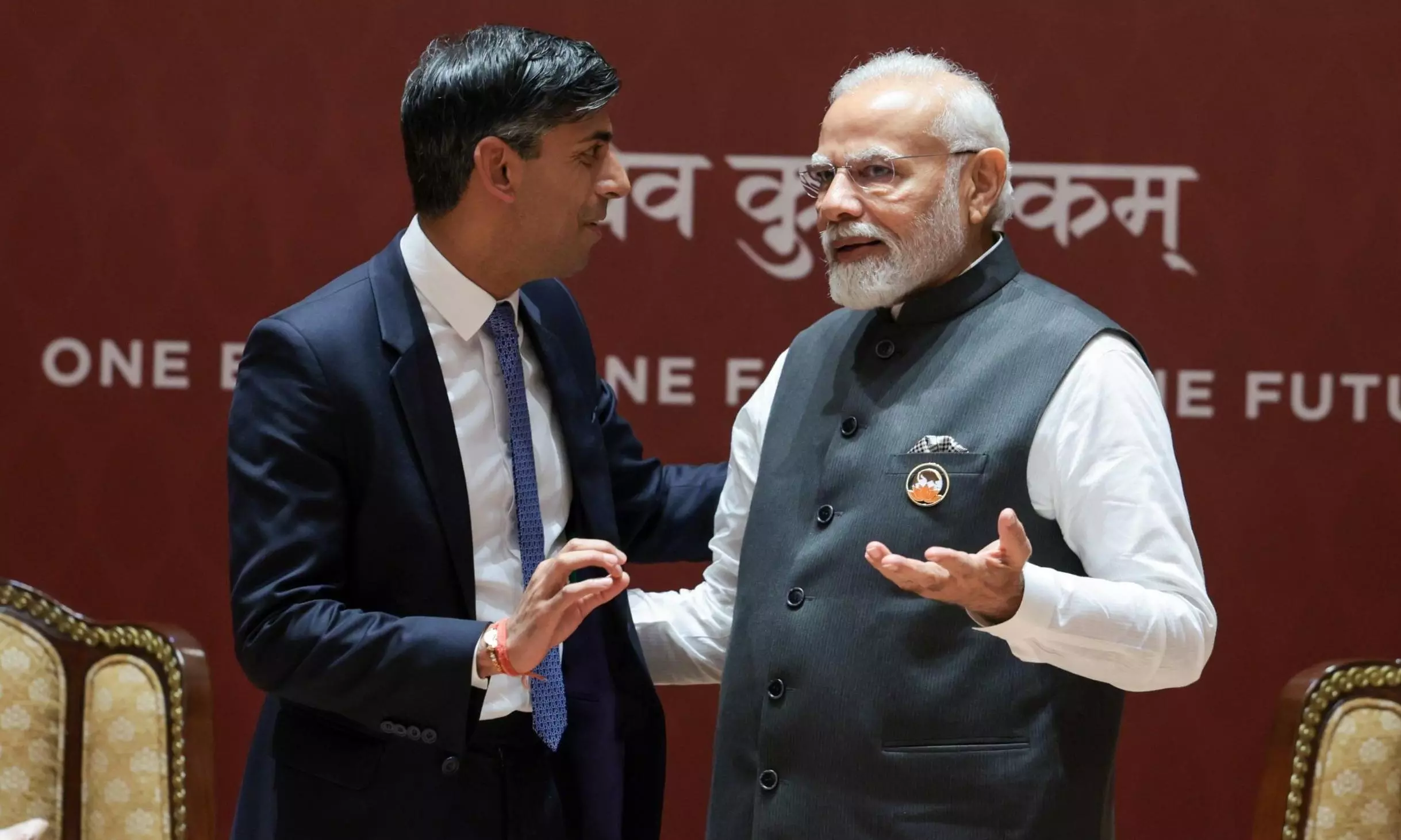
Why India, UK may go for a watered-down free trade pact
Terms offered by India reportedly don’t give Britain any meaningful new access to its markets while fulfilling India’s wish list will be difficult for Tories

Prime Minister Narendra Modi’s government is pushing the British government to sign a watered-down Free Trade Agreement (FTA) between the two countries so that they may use its completion as part of their Lok Sabha election campaign.
Senior British officials have told The Times newspaper in London that Kemi Badenoch, the UK trade secretary, is under immense pressure from New Delhi to sign the FTA before negotiations are suspended for the upcoming Lok Sabha elections.
Indian elections
“They want a paper deal to wave and say look what we have achieved. But we are not prepared to sign up to something that is basically worthless,” a Whitehall source has been quoted as telling The Times.
The India-UK FTA negotiations began formally in January 2022. Having delivered Brexit, then Prime Minister Boris Johnson desperately needed to show the British public that he could deliver a bigger market than Europe — the one he had just lost. India fit the bill perfectly.
India’s wish list
In return for opening India to British products, India wants visa relaxations for its students to study in the UK, find jobs and eventually settle down there. The Modi government wants more visas for entrepreneurs to set up businesses and professionals to get well-paid employment.
Around 50,000 Indians are granted skilled worker visas by the UK every year as of now. India wants this number to go up and is also concerned about the fact these workers pay national insurance in the UK despite not being eligible for pensions or social security benefits. National insurance payments in the UK essentially go towards free National Health Service and free education for children up to the age of 18 — which Indian workers do enjoy — and not so much for pensions or social security.
British difficulties
However, for the Conservative Party, which has pledged to cut down both legal and illegal immigration to the UK, fulfilling India’s wish list is proving to be very difficult. In October 2022, then Indian-origin Home Secretary Suella Braverman had said she had grave reservations about offering India “open borders” as part of the FTA “because the largest group of people who ‘overstay’ (visas) are Indian migrants”.
Braverman also put on record that the Migration and Mobility Partnership (MMP) signed with New Delhi in 2021 to deport illegal Indian immigrants “has not worked very well” — effectively accusing the Modi government of not keeping its side of the bargain.
Immigration issue
Reducing immigration is one of Prime Minister Rishi Sunak’s main planks for the UK general election that should take place in the autumn of this year. Indian-origin Sunak is under tremendous pressure from the right-wing of the Conservative Party as well as voters of the Red Wall constituencies in North England who gave Johnson a thumping majority in 2019 so that he would reduce immigration.
In the FTA, the UK is looking for India to reduce tariffs on imports of cars, whisky and some foods which are currently as high as 150 per cent. Downing Street would also like greater access for British accountancy, architecture and technology firms among other things. However, sources told The Times that the terms being offered by the Indian negotiating team fell short of what British ministers were prepared to accept and did not give any meaningful new access to Indian markets.
Indian pressure
The UK source told The Times that the main sticking point for the FTA is that India “does not want to open up its economy too much and liked the concept of trade deals but not the substance”.
Britain also appears to be unhappy with the Indian government repeatedly suggesting that a deal was close, arguing that they saw this as an effort to put pressure on London to agree to a watered-down deal. One government source told The Times that there has been “no meaningful progress” despite continuous talks between the two countries since the new year.
Using Labour
British government sources also pointed to a meeting in Delhi earlier this month between commerce minister Piyush Goyal and the Labour Party’s shadow foreign and business secretaries as evidence of the Indian government trying to use opposition leaders to put pressure on the Sunak government.
The Times also reported that one source suggested that the only hope of breaking the deadlock was a direct deal between Sunak and Modi. If this is going to happen, then it must take place quickly as time is running out for both premiers who are headed into general elections this year.
A signed FTA with India would also be a great boon for the beleaguered Sunak whose popularity ratings are dropping sharply every day. However, Sunak would be committing political hara-kiri domestically if he was to accept India’s terms on increased visas.
